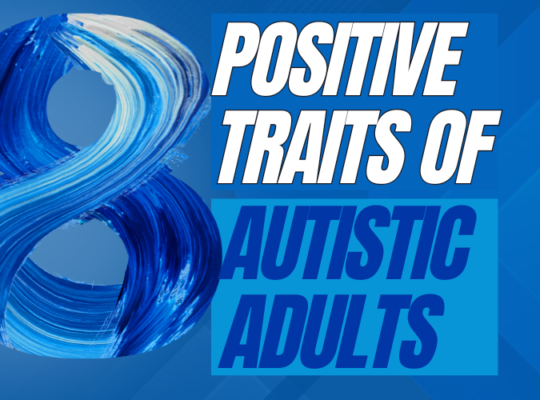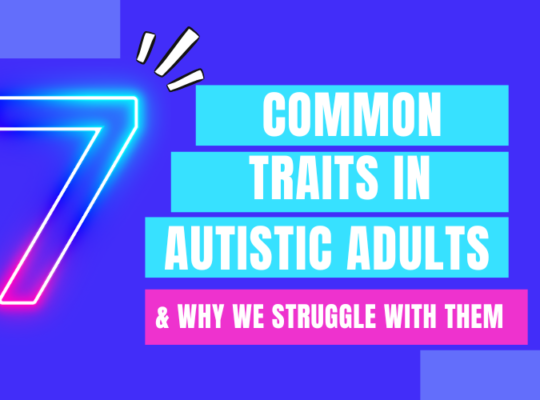As an Autistic adult myself, I know from firsthand experience how difficult the Christmas season can be. One of the most challenging parts of the most wonderful season of the year is the Christmas parties and family gatherings that we experience. These fun events for many are full of anxiety and stress for us on the spectrum, with a high risk of sensory overload, shutdowns, meltdowns and may contribute to Autistic burnout.
We cannot, and should not, expect everyone to know what our needs are to make the season more welcoming for us, especially since each person on the spectrum may experience Autism differently. Therefor we must know how to advocate for ourselves.
When asked for our input into holiday decorating and planning, we need to know what can be done that can make the season enjoyable for us while keeping it enjoyable for others.
Before we get into what it takes to create a inclusive Christmas that includes Autistic adults, if we are not asked for our input, we should politely share our needs with those decorating and planning for the holidays.
For the best results we should get involved in the decorating and the planning for the holidays as it is the best way to make sure our needs are properly accommodated for the season.
Let’s start with creating a calm environment.
If you are sensitive to being overstimulated during the holidays, be sure to be open about this with those who are planning an event or with yourself when you are the one planning the event. If flashing lights or overly bright decorations can trigger sensory overload, a solution may be to use soft, warm lighting or static lights.
For those of us who are sensitive to noise levels, we should advocate for our needs by suggesting that soft, soothing Christmas music be played at a low volume or a silent background be used to prevent sensory overload.
Most importantly, when designing a calm environment is to create a quiet space for you, or any Autistic adult, or anyone who needs a break to retreat to.
Let’s continue our planning by discussing decorating for the season.
Be sure to advocate for your sensory needs when it comes to holiday decorations. If it would help you to be surrounded by calming colored or textured decorations, be sure to share that during the planning and decorating part of places where you will be spending a good amount of time during the holidays.
Be sure to share your preference for scented candles and strong-smelling decorations. If they bother you, make sure that is known. If there is a scent you prefer, be sure to share that as well.
Make sure to plan predictable activities for any gathering.
When assisting in planning a holiday gathering, advocate for a schedule to be created and shared. The schedule should include what guests can expect during the gathering, including mealtimes, activities, and when visitors might arrive.
For some of us on the spectrum, we may be more comfortable with shorter activities – this means a game of monopoly or dungeons and dragons may be a bad idea.
Speaking of activities, be sure to make sure games are sensory friendly for you. If you are not a fan of physical contact, twister may not be a game that would make you comfortable.
If you are not a fan of surprises, you may wish to advocate for a low surprise or a surprise free gathering. If you prefer to unwrap your gifts alone, be sure to inform the party planners beforehand.
Now let’s talk about advocating for sensory-friendly food.
This can be a touchy subject, especially if you are a guest. If this is the case, asking for a special accommodation in meal preparation, especially if the host or hostess is cooking a big meal, may be a bit rude. If this is the case, be sure to bring a few of your own sensory friendly foods. Sometimes it can smooth things over with the host if you offer to make enough to share with other guests.
Another tip to keep everyone happy and reduce stress for yourself is to inform the host before the events that you are going to eat a sensory friendly food and it is no reflection on their cooking.
If eating around others is a sensory issue for you, regardless of it is the noise of all the conversations or the sounds of others eating, ask if you can be seated in a quiet area to consume your meal.
Socializing can be a anxiety trigger for many of us on the spectrum, but with careful advocating and planning, this can be manageable for all.
If socializing is a challenge for you, which it is very likely it is if you are on the spectrum, advocate and/or plan for flexible participation in conversations and group activities at any holiday gathering.
This can be achieved by the creation and encouragement of smaller, one on one interactions, especially at larger gatherings which are overwhelming for many Autistics.
Be sure when advocating for yourself for any Christmas gathering, that your interests are incorporated into the event.
It may be a good idea to tailor activities or themes that reflect your interests as an Autistic adult into the party. This might include a craft, puzzles, or a special holiday movie or song that you enjoy.
This may be hard for some of us on the spectrum, but we must try our best to be flexible during this holiday season.
When we are working with someone who is planning a party and wanting to make it an inclusive event for Autistic adults, be sure to remind them that they should be prepared to adapt plans based on the needs of all their guests – including their Autistic guests.
We should gently remind the planners of events and hosts of events that we may need to leave or take breaks unexpectantly. By doing this we are sharing with our host that we are not try8ing to be rude, and they can advocate for us with other guests who are startled by our sudden absence.







